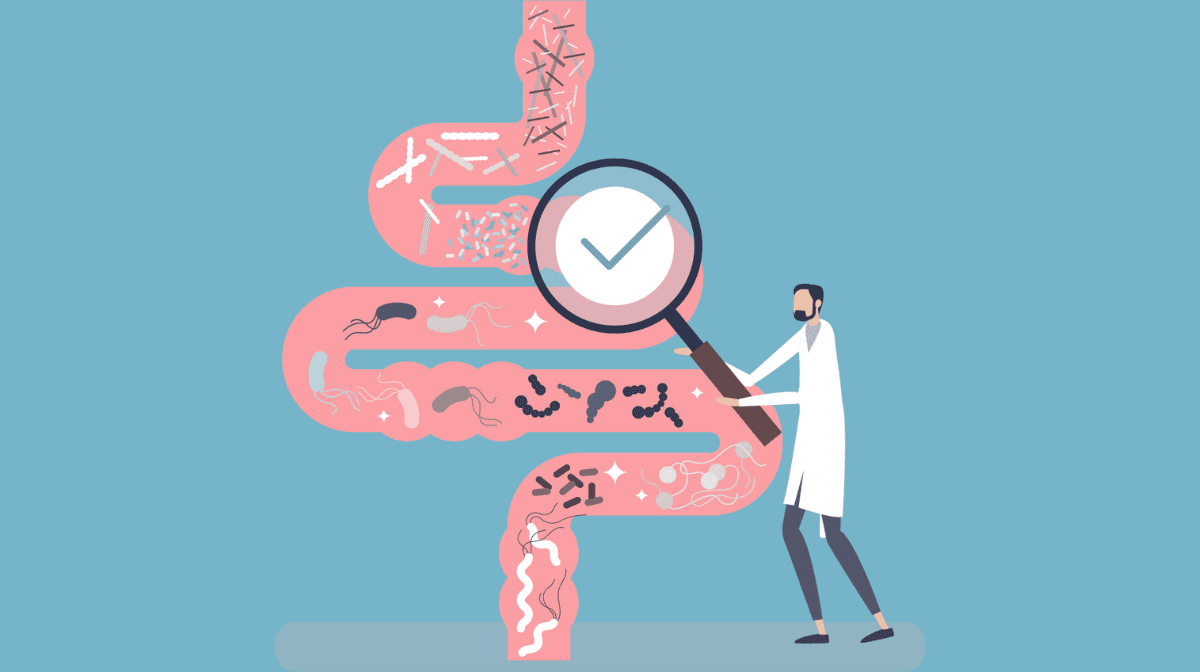People’s interest in gut health has surged in recent years and the curiosity surrounding the topic doesn’t seem likely to decline any time soon. Now that people are more aware of how gut health can impact their general health and wellbeing, here at PrecisionBiotics we want to find out if people in the UK are in tune with their gut.
Health and wellness retailer Holland and Barrett recently ran a survey for their annual UK gut health report which produced some interesting statistics that we will explore in this article. We will also take a look at some of the common gut issues people face and the different symptoms that can affect people of all ages, and offer tips on how to manage them.
Findings of the gut health report
There were some interesting findings from the gut health report, so let’s find out how the people of the UK are feeling about this topic and if they are prioritising their gut health.
Interestingly, 60% of people refrain from talking about their gut health, which could prevent those experiencing gut issues from seeking appropriate care in order to treat the symptoms.
More than half (58%) of those surveyed said they have experienced gut health problems, and what’s more alarming is that 45% of these people said the issues were chronic, meaning the symptoms had lasted longer than three months.
So what were the most common symptoms? Bloating and gas were two of the most common signs, with 51% experiencing these problems, while 30% found that acid reflux was a common symptom.
What are the symptoms and causes of bad gut health?
To ensure your gut health is in tip-top condition, PrecisionBiotics want to make you aware of the signs that could indicate potential problems. Here are some symptoms that could mean you have an unhealthy gut, and how these problems may be caused.
Irregular stools or constipation
If you experience bowel movements that are bigger than normal and are hard to pass, this could be a sign of constipation, a problem that can affect people of all ages. A third of those surveyed (33%) said they experienced this symptom. Another sign is if your stool is hard and lumpy, or if you have only been to the toilet three times or less in a week.
Constipation can be caused by stress, anxiety and depression, which is why it’s important to take care of your mental health. There are also some medications that can cause constipation. A lack of exercise can also play a role, as well as a change in diet like not getting enough fibre or not drinking enough fluids.
Upset stomach
Stomach issues like gas, bloating and heartburn can all be symptoms on their own, or they can be accompanied by toilet troubles. More than half of the people surveyed (51%) had gas and bloating when experiencing issues with their gut.
An unbalanced microbiome in the gut can be the root of an upset stomach. This is because the gut can’t process the food properly and dispose of the body’s waste in the usual manner.
Chronic inflammation
The condition of the gut could play a role in chronic inflammation. Research has shown that inflammation can be caused by an imbalance in the gut’s bacteria, and this can be a symptom of autoimmune diseases, insulin resistance and weight gain.
The cause of the inflammation could be a poor diet. Refined carbohydrates such as white bread, pasta, white sugar, processed meats and excessive alcohol can all contribute to the body experiencing inflammation.
Trouble with sleep
Having trouble with your sleep? This could be another sign that there is an issue with your gut health. The gut produces a large amount of the body’s serotonin (approximately 95%) and if there is an imbalance in the gut microbiome, this can impact the quality of sleep.
Low serotonin levels can cause sleep disruption and are believed to be linked to depression and insomnia.
Spots and blemishes
Did you know that unwanted spots and blemishes on the skin can be a sign of poor gut health? A study in 2011 found that some people with acne were likely to have increased intestinal permeability, also known as leaky gut.
When there are cracks in the gut lining, bacteria and toxins can enter the bloodstream and cause inflammation. This can then result in the development of acne.
How to keep your gut happy and healthy
Now that you are aware of what can cause bad gut health and the symptoms you need to look out for, let’s take a look at the different ways you can keep your gut happy and healthy.
Make changes to your diet
Simple changes to your diet can have a big impact on your gut health. Read our full blog on the best foods for gut health, but in summary, probiotic foods that contain live bacteria such as yoghurt, sauerkraut, tempeh, aged cheeses, pickles and even apples, can promote a healthy microbiome.
Foods that contain prebiotic fibre such as bananas, honey, onions, oats and garlic, can be a beneficial source of bacteria for the gut, so make sure you have plenty of these too.
Probiotics, often referred to as "friendly bacteria," are naturally found in the gut and are believed to help restore the natural balance of gut bacteria when it has been disrupted by illness or treatment.
Recent research has shown that probiotics might be beneficial in alleviating the symptoms of constipation, further highlighting their potential impact on digestive wellbeing.
Get enough exercise
We all know exercise can benefit overall health, but it can also benefit gut health. Ensuring you get enough movement throughout the day, such as going for a walk or even doing some housework, can increase your heart rate. This helps to create contractions that allow stools to move through the gut.
Another reason why you should exercise to improve your gut health is that it helps the gut operate more effectively. The stools will be kept soft as food spends less time within the bowel and less water is absorbed by the body.
Take vitamins and minerals
41% of respondents say they find it hard to break the cycle of bad gut health habits. An easy way to take better care is to ensure your body and gut are getting the appropriate vitamins and minerals.
These micronutrients play a crucial role in various aspects of our health, including energy, metabolism, immune function, cellular growth, and supporting gut health.
The takeaway
With more than half the people surveyed experiencing gut health problems and symptoms such as bloating and gas, PrecisionBiotics believe it’s vital that people know the root cause of these issues to prevent them from occurring regularly. Taking the necessary precautions like making changes to your diet, taking vitamins and minerals, and getting enough exercise can make a huge difference to your gut health. Not only will this help alleviate symptoms, but you might see a positive impact on your general health and wellbeing.
Sources:
https://www.hollandandbarrett.com/the-health-hub/conditions/digestive-health/gut-health-report-2023/ https://www.ncbi.nlm.nih.gov/pmc/articles/PMC3038963/ https://www.amymyersmd.com/article/serotonin-gut-health https://www.health.harvard.edu/blog/leaky-gut-what-is-it-and-what-does-it-mean-for-you-2017092212451








